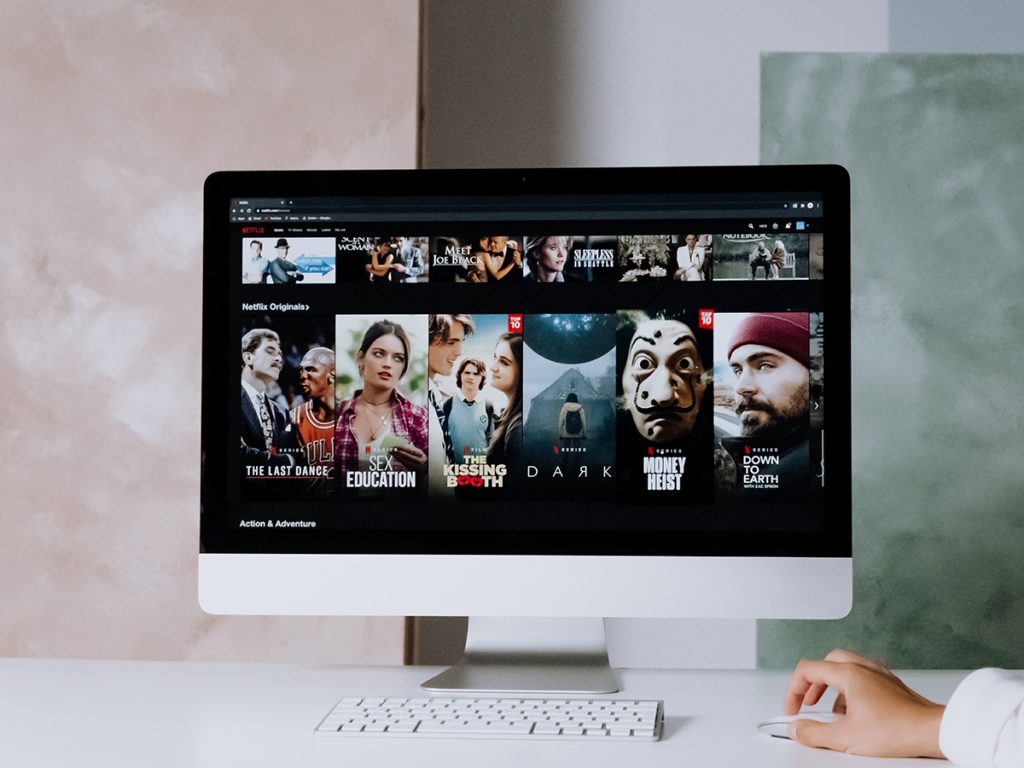Communication Day: Faculty Delve Into ‘Streaming Wars’

By Zenebou Sylla ’22
Three Emerson faculty members led an online conversation last Wednesday about net neutrality, how streaming services such as Disney, Netflix, and Amazon fight to gain market share, how content is proliferating, and how users can protect their data.
The “Streaming Wars: Diversity and Inclusion” panel was one of a series of discussions held March 31 offered as part of Communication Day, an annual event sponsored by the School of Communication that brings together faculty experts on timely topics across the School’s four disciplines: Communication Sciences and Disorders, Communication Studies, Journalism, and Marketing Communication.
The panelists said there are a number of issues consumers need to pay attention to when it comes to watching and generating content online, including privacy, net neutrality, and how Congress can impact policies such as the control of hate speech on platforms.
Russell Newman, an associate professor in the Marlboro Institute for Liberal Arts and Interdisciplinary Studies and the author of The Paradoxes of Network Neutralities (MIT Press, 2019), stressed that learning about net neutrality policy is important in order for audiences to understand issues such as what they’re going to find online, who will have access, and who can do what?
“Policy determines all these things. We’re in the midst of all these sea changes in policy, and it has everything to do with how streaming platforms are going to operate going forward, your interactions with them, how many you’ll be able to interact with,” Newman said. “And as an Emerson student who’s going to get out and get involved in media production, how hard or easy it might it be for you to start up your own service if you don’t want to have to play with one of the big dogs?”
The discussion also shared ways individuals can control when and where we share our personal information with online entities, until better controls are in place to protect our data.
Marketing Communication Executive-in-Residence Robert Lyons said the United States can look to Europe’s General Data Protection Regulation (GDPR) as an example of how to safeguard users’ information.
“The government can and should do something about it. If you look at what’s happening in Europe, Germany, for example, and say ‘Yes, these battles can be won,’” said Lyons.
As streaming platforms create more of their own content, many people are signing up for multiple services due to interest in a particular program, heating up competition in an already hot market.
Marketing Communication Assistant Professor Naa Amponsah Dodoo added that companies that are developing smaller or niche streaming services could have the option of joining or rejoining larger companies if they were to start declining in popularity. Or if they were to start taking off.
“If they are able to show a consistent level or maybe upward trajectory, and it will make sense for these bigger companies to try and absorb them into their fold… we’ll see what happens then, it’s definitely possible,” said Dodoo.
The market, whether streaming platforms, podcasts, or YouTube, is consistently evolving to make room for more culturally inclusive programming and provide new outlets to diverse creators.
“When you take a look at smaller content creators like YouTubers, they are also really big now in terms of creating podcasts, sharing it on these different platforms, creating videos… I think it will be interesting to consider how that is going to evolve as well, because we have seen them diversify their content because they understand that we need to do something more,” said Dodoo.
Categories